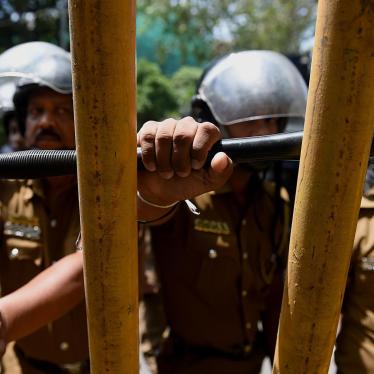Chinese authorities executed Akhmal Shaikh, a United Kingdom citizen, without giving him access to UK diplomats or doctors, in December 2009. The following year, Chinese officials indicated to the Philippines that, if its diplomats stayed away from the Nobel Peace Prize ceremony honouring Chinese dissident Liu Xiaobo, Beijing would consider sparing the lives of three Philippine citizens facing the death penalty. Manila obliged, but Beijing did not: the three were executed in March 2011.
Gui Minhai, a Swedish publisher kidnapped in Thailand in 2015 and forcibly “disappeared” again by Chinese officials in 2018, has not been seen by Swedish diplomats in years. And just a few weeks ago the Australian ambassador to the People’s Republic of China (PRC), Graham Fletcher, was denied access to the trial of Cheng Lei, an Australian journalist being prosecuted on dubious state secrets charges.
There is plenty of evidence that China’s “diplomatic assurances” are not to be trusted. Yet New Zealand’s Supreme Court, Foreign Affairs Minister Nanaia Mahuta and Justice Minister Kris Faafoi have all concluded that the Chinese government is committed to fair trials, opposed to torture, and trustworthy with respect to its “diplomatic assurances” to Wellington in the case of Kyung Yup Kim.
Kim, a New Zealand permanent resident, is sought in alleged connection to a 2009 murder in China. In yielding to Beijing’s request to send him to China for trial, New Zealand risks setting a dangerous precedent: accepting unenforceable promises from a notoriously abusive government and sidestepping obligations to combat torture.
On April 13, the Supreme Court brushed aside extensive expert testimony and reported information regarding the routine practice of torture and denial of fair trial rights in China in ruling Kim eligible to be extradited. The judgment demonstrates a grave lack of understanding of China’s justice system, from the use of forced confessions to the judiciary’s profound politicisation.
The court’s decision rests on a flawed argument that, because Kim is not a high-profile political case, he is not at risk. The ruling states: “We are satisfied the further assurances provided a reasonable basis on which the [justice] minister could be satisfied that there was no real risk Kim would face an unfair trial on surrender to the PRC.”
Faafoi asserts he is “satisfied that China will honour its assurances”. He is reassured by “comprehensive diplomatic assurances”, and believes that “China has significant incentives to comply” with those. Mahuta has also expressed her confidence in Beijing’s promises.
Decades of research by Human Rights Watch and others demonstrates that torture of ordinary criminal suspects – not just explicitly political cases – is alarmingly common and is used against suspects at all stages of the detention process, against both Chinese citizens and foreigners.
This torture is compounded by the authorities’ chronic denial of means of redress for those mistreated in detention. The Chinese government and its powerful state security agencies regularly demonstrate their disdain for their obligations under international human rights law.
Jacinda Ardern’s Government suspended New Zealand’s extradition treaty with Hong Kong in 2020 because of concerns regarding the Chinese government’s violations of international treaties and manipulation of Hong Kong’s legal system.
It has also expressed concerns about Chinese authorities’ due process violations, including mass arbitrary detentions targeting Uyghurs and other Turkic Muslims.
Wellington may be convinced that diplomatic assurances are a credible solution to this problem. But the growing weight of evidence and international expert opinion indicates that diplomatic assurances cannot protect people at risk of torture from such treatment.
Countries that rely on such assurances are either engaging in wishful thinking, are negligent, or are using the assurances to cover up their own complicity in torture. In any case, governments seeking diplomatic assurances against torture are in effect trying to circumvent their own international legal obligations not to return people to face mistreatment.
This case undoubtedly stems from a terrible injustice: an unsolved murder in China. But there is no reason to compound that with a further injustice with broad implications. Beijing will certainly use Kim’s return to press other governments to do the same thing. The New Zealand Government should not want that legacy, especially when lives are at stake.









